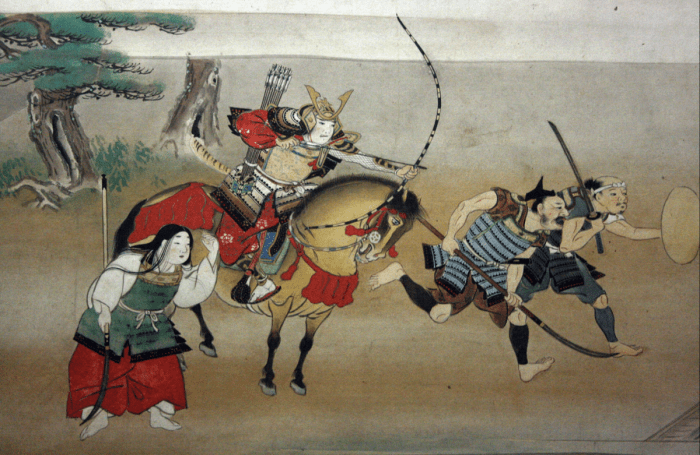Salaried samurai definition ap world history – In the tapestry of Japanese history, the salaried samurai emerged as a distinct class during the Heian period, playing a pivotal role in shaping the nation’s social and political landscape.
Salaried samurai, also known as gokenin, were a group of samurai who received a fixed stipend from the government in exchange for their military and administrative services. This arrangement marked a significant departure from the traditional samurai who relied on land grants for their sustenance.
Definition of Salaried Samurai: Salaried Samurai Definition Ap World History

Salaried samurai, also known as kokudaka samurai, were a class of samurai in feudal Japan who received a fixed stipend from their lord in exchange for their military and administrative services. Unlike traditional samurai who relied on land grants for their income, salaried samurai were paid a monetary salary, which gave them a degree of financial independence and mobility.
Historical Background
The emergence of salaried samurai can be traced back to the Heian period (794-1185). During this time, the central government weakened, and local warlords gained power. These warlords needed a reliable and loyal force to maintain order and defend their territories.
To attract and retain skilled warriors, they began offering fixed salaries in addition to land grants.
Characteristics of Salaried Samurai
Salaried samurai shared many characteristics with other samurai classes, including their martial training, code of honor, and loyalty to their lord. However, they also had some unique features that distinguished them:
- Fixed Stipend:Salaried samurai received a regular monetary payment from their lord, which allowed them to live comfortably and focus on their military duties.
- Administrative Roles:In addition to their military responsibilities, salaried samurai often held administrative positions within their lord’s domain. They managed finances, collected taxes, and oversaw local affairs.
- Lower Social Status:Salaried samurai were generally considered to have a lower social status than traditional samurai who owned land. This was because their income was not tied to the productivity of their land, and they were seen as more dependent on their lord.
Role in Japanese Society
Salaried samurai played a vital role in maintaining social order and stability in feudal Japan. They were responsible for enforcing the law, suppressing rebellions, and protecting the interests of their lord. Their administrative skills also contributed to the efficient functioning of local governments.
Comparison with Other Samurai Classes, Salaried samurai definition ap world history
The following table compares salaried samurai with other samurai classes:
| Characteristic | Salaried Samurai | Bushi | Ronin |
|---|---|---|---|
| Income | Fixed stipend | Land grants | None (unemployed) |
| Social Status | Lower | Higher | Lowest |
| Military Duties | Yes | Yes | No (unless hired) |
| Administrative Roles | Yes | No | No |
Legacy and Impact
The legacy of salaried samurai can be seen in the modern Japanese military. The Imperial Japanese Army and Navy were modeled on the feudal system, and many of the ranks and titles used today can be traced back to the salaried samurai of the past.
Additionally, the concept of a fixed salary for military service has been adopted by many modern armies around the world.
Common Queries
What were the unique characteristics of salaried samurai?
Salaried samurai were distinguished by their fixed stipends, their emphasis on military and administrative skills, and their close ties to the government.
How did salaried samurai contribute to Japanese society?
Salaried samurai played a crucial role in maintaining social order and stability, carrying out administrative tasks, and influencing political decision-making.


